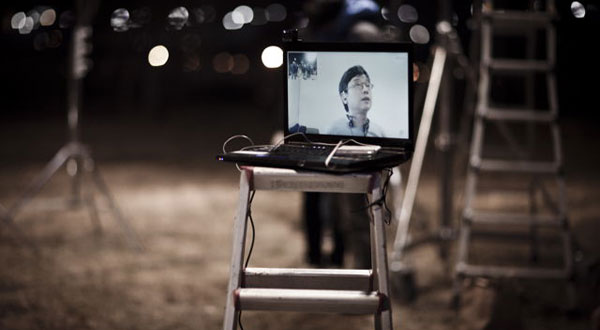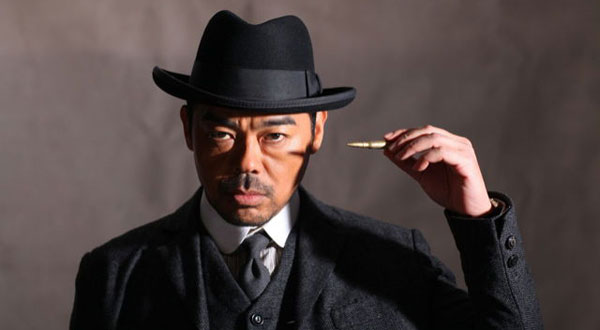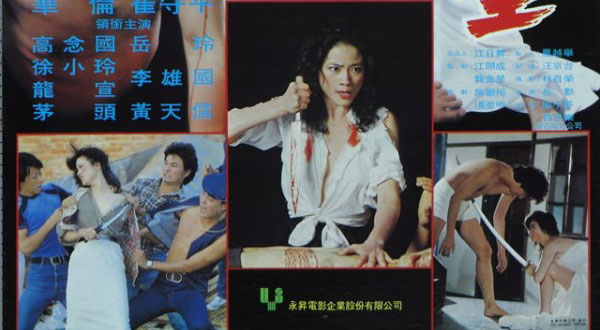Fun fact: Ip Man movies now constitute about 10% of Hong Kong’s cinematic output. And this year’s NYAFF features two of them. Both of which are by the same guy! Herman Yau, who directed The Untold Story. I had no idea that he’d go on to make non-Category III flicks…
Ip Man: The Legend Is Born
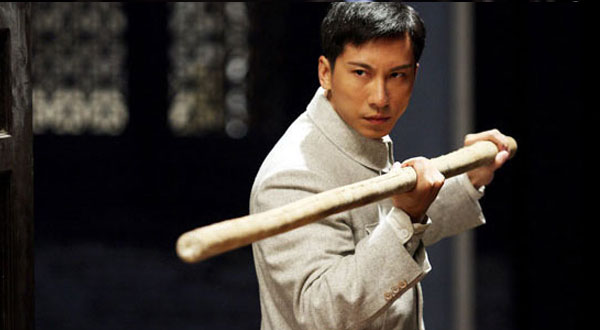
The Legend Is Born acts as a prequel of sorts to very first Ip Man movie, which would transform Bruce Lee’s mentor into a veritable cinematic franchise. It details Ip Man’s formative years; the film kicks off with him and his older/adopted brother, Tin-chi, being dropped off at a Wing Chun school in Foshan, China, one run by Chan Wah-shun, played by Sammo Hung. Another fun-fact: Hung has been in 45% of every Ip Man movie ever made! There Ip Man learns the basic truths that would guide the rest of his life. Because Chan Wah-shun was of ailing health, he dies early on, so the school is handed off to his best bud, Ng Chung-sok, played by Yuen Biao (who you’ve probably seen in about a dozen Jackie Chan movies but never realized it). Anyhow, both Ip Man and Tin-chi befriend a female student, Lee Mei-wai, and the three become super tight growing up. Young adult Ip Man is portrayed by Dennis To, who looks like a younger version of Donnie Yen, to an uncanny degree, and adult Tin-chi is portrayed by Louis Fan, who aside from being best known in Riki-Oh: The Story of Ricky, was a bad guy in the first Ip Man movie and later a good guy in its sequel (basically, if you’re in one Ip Man flick, you’re going to be in them all inevitably). Anyhow, we soon realize that Lee Mei-wai loves Ip Man, but Tin-chi is in love with Lee Mei-wai, thus setting up the love triangle that will carry on for the rest of the movie.
Eventually Ip Man heads off to Hong Kong for college, where he learns about Western culture, but he also comes across an old guy from his hometown, Leung Bik, who knows a modified and improved variation of Wing Chun, which is used to kicks Ip Man’s ass. BTW, it’s worth noting that not just Ip Man, but Chan Wah-shun, Ng Chung-sok, and Leung Bik are all real people who played the same pivotal roles IRL, though the details in the movies have been exaggerated for dramatic effect. As for the elderly fellow portraying Leung Bik, its Ip Chun, Ip Man’s real life son. Who was 85 at the time of filming, and we really do see an old guy mop the floor with a young kid. It’s pretty awesome. Anyways, Leung Bik offers to teach Ip Man this new flavor of Wing Chun, which emphasizes flexibility (he believes those who stick too closely to tradition are foolish). Upon returning to Foshan, he shows off this new move set, which pisses off Ng Chung-sok for deviating from tradition (one has to wonder if Bruce Lee pissed people off when he developed Jeet Kune Do, which also deviated from the norm). Meanwhile, Tin-chi we discover has become a successful business person after hooking up with another Wing Chun association, and when some Japanese folk coming knocking on his door, who are keen on infiltrating Foshan (they’re always the bad guys in Ip Man movies), that’s when Ip Man’s real trouble begins.
Call me crazy, but as good as the original Ip Man was, I think The Legend Is Born is better. Even though that other flick had slightly more impressive fight scenes, since this one here chose to make things a bit more fantastical with some obvious wirework, the end result is simply more fun to watch. Plus it’s not like the original Ip Man was exactly historically accurate to being with. Though more importantly, the non-fight stuff in The Legend Is Born is vastly superior; the whole love triangle bits are genuinely engaging, as is all the political mumbo jumbo, even if Ip Man himself somewhat takes a back seat. The Legend Is Born is a real throwback to the late 70s/early 80s kung fu flicks and is immensely enjoyable. Plus it’s a total 180 when compared to…
Ip Man: The Final Fight
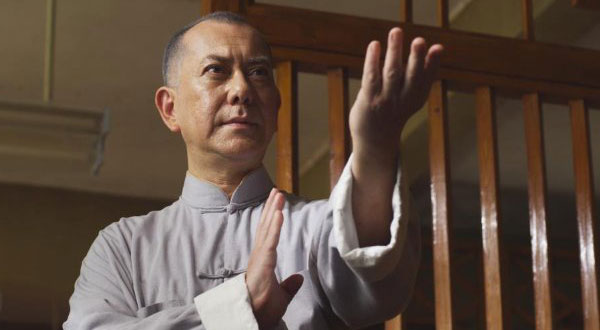
As noted, The Legend Is Born is a prequel of sorts to Ip Man 1, while The Final Fight is the opposite bookend and serves as the follow-up to Ip Man 2. By detailing the latter part of the legendary martial artist’s life, his final days. This time, Anthony Wong, from The Untold Story (and my fave HK actor, by far) is the star of the show; instead of being a brash and energetic upstart, Wong’s portrayal is that of a wise and subdued elder statesman. Much has happened during the years in-between, which were mostly detailed in the original two Ip Man flicks; Ip Man and his wife were enjoying a relatively carefree existence, thanks to their privileged backgrounds, though everyone in China was doing a-okay in general. That was, until WW2 happened, which robbed Ip Man and his family of their money and their land, along with everyone else. Hence why Ip Man is forced to return to Hong Kong; previously, he was a college student ready to conquer the world, but here he’s a middle aged man, trying to rebuild his life. The answer seems obvious, which is to start a new school, though Ip Man is not super keen on the idea of doing so (for reasons that are made clear later on). Still, he finds a new home on the roof of hotel and starts teaching various folk, mostly those who work at the hotel and their friends, his very own special flavor of Wing Chun.
As with The Legend Is Born, but even more so, the story isn’t just about Ip Man, but the people around him. Before when Ip Man wasn’t the focus, it was a tad bit frustrating, but here the approach makes more sense, since it’s mostly about the legacy that is passed forth. I’d imagine most folks watching will constantly wonder if this person or that is Bruce Lee. Actually, the students here include a dude who attempts to represents downtrodden workers by unionizing them, but is a huge wimp, the seamstress who is the total opposite and is a total rabble rouser, plus a cop who is noble at heart, yet still accepts bribes to go up in the ranks. Again, the differences between this movie and the last one are night and day; instead of having a very epic feel to the proceedings, plus a mystic quality overall, The Final Fight plays it low key, and feels very down to earth. So instead of a huge, sweeping tales, it’s largely vignettes, bits and pieces of everyday life. Same goes for the fight scenes, which feel far more grounded in reality. I had doubts if Wong would be able to pull them off, given that he doesn’t have the background of Dennis To, who started his career as a legit wushu practitioner. Well, all concerns were completely unwarranted, and his performance is more than convincing. One of the best moments in the movie was his face off against the head of a rival school Eric Tsang (another veteran HK actor), but even better was seeing two of them shooting the sh*t afterward. Them going at in the newspapers, via dueling poetry, was also highly enjoyable.
More so than any previous film, The Final Fight does the most to tell us who Ip Man really was. The main problem with the Donnie Yen movies are that they put the subject matter on a pedestal. Here, Ip Man is still an ass kicker who spouts pearls of wisdom. But he’s also a human being, one who has a chronic stomach ailment and falls for a girl that’s way too young for him because of the heartbreaking loss of his wife, among other traits that aren’t necessarily becoming of a martial arts god. It’s hard to say which is better; while I honestly had more fun watching The Legend Is Born, The Final Fight is a slightly superior film. Now more than even, I’m dying to see Wong Kar-wai’s take on Ip Man (mostly to see if Tony Leung’s kicking and punching are up to snuff). Unfortunately, both Herman Yau efforts have one screening only, but The Final Fight‘s has yet to happen! It takes place later today 6:30PM, at Lincoln Center.

